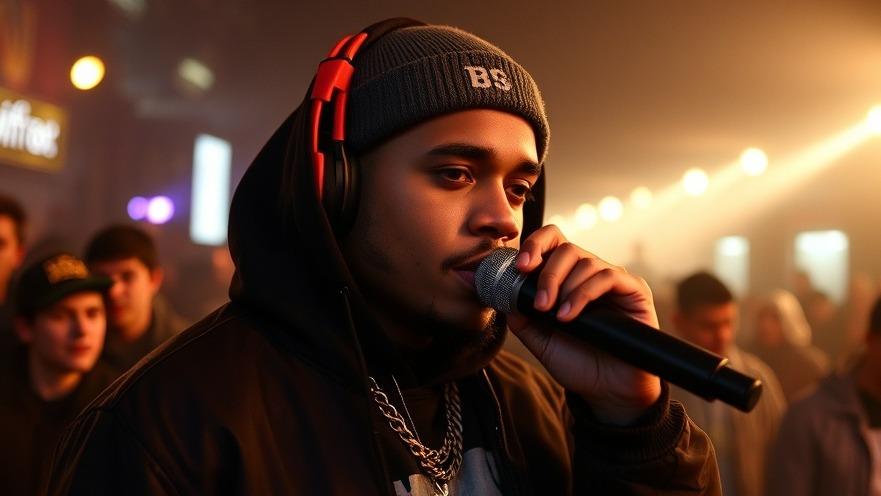
Rapper Sheff G's Fall from Grace: A Cultural Reflection
Sheff G, legally known as Michael Williams, is a name that was once celebrated within the hip-hop community but has recently become synonymous with controversy and criminality. Recently sentenced to five years for his involvement in attempted murder and gang violence, his story raises compelling questions about the intersection of culture, celebrity, and public responsibility. This narrative is particularly resonant in a bustling city like New York, where the rhythms of hip-hop have become intertwined with the complexities of urban life.
The Context of Gang Culture in Brooklyn
Brooklyn, like many urban centers, has a rich tapestry of cultural influences and socio-economic challenges. The rise of gangs such as the 8 Trey Crips has been linked to systemic issues such as poverty, lack of educational opportunities, and community disinvestment. Sheff G's involvement in gang-related activities reflects the harsh realities faced by many young men in his neighborhood. According to recent reports, over 30 alleged gang members have been indicted as part of a wider investigation into gang violence in the area. This pattern elucidates a disturbing trend where rising musical success coexists with the darker side of street culture.
The Consequences of Fame and Influence
Sheff G's rapid ascent in the music industry, characterized by millions of streams and viral hits, highlights the dual-edged sword of fame. With great influence comes great responsibility; however, for some, this responsibility is overshadowed by the allure of maintaining street credibility. The rapper's story is compounded by his associations with other artists, including Sleepy Hallow, who also faced legal issues following their appearance at a Trump rally in the Bronx—a moment that, while politically charged, ultimately draped both artists in a shroud of scandal.
Public Reaction and Political Ramifications
The immediate public reaction to Sheff G's sentencing has been multifaceted. Following the announcement, discussions emerged regarding the political implications of his performance at a rally for Donald Trump during his campaign to secure Black voters. Critics have questioned whether Trump's campaign was aware of the rappers' backgrounds and the complex dynamics of their support. A spokesperson for Trump’s campaign responded, stating that "they always whisper your accomplishments and shout your failures," effectively sidestepping the concerns raised. This commentary underscores the broader debate regarding the commodification of Black culture in political settings.
Future Outlook: What This Means for Artists
As we consider Sheff G's case, it becomes crucial to ponder the future of artists who navigate similar paths. The growing scrutiny on hip-hop artists and their affiliations with violence may push emerging talents to rethink their trajectories. Artists with genuine aspirations should learn from Sheff G's experience, recognizing that while street credibility may provide short-term gains, cultivating a positive legacy is imperative for long-term success.
Conclusion: A Call for Change
Sheff G's journey serves as a cautionary tale about the potential pitfalls of fame, gang culture, and the moral responsibilities of artists. As society grapples with these issues, a collective effort must be made to create supportive environments that uplift rather than undermine the potential of young artists. Community programs aimed at education, mentorship, and career development could shift the narrative for future generations.
In a world where violence often eclipses artistic expression, it is essential to advocate for change. Let us encourage a culture that celebrates artistic talent while emphasizing the importance of responsibility—both to oneself and the communities from which they emerge. Join the conversation on how we can work together to foster a future where artistry and integrity coalesce.
 Add Row
Add Row  Add
Add 




Write A Comment